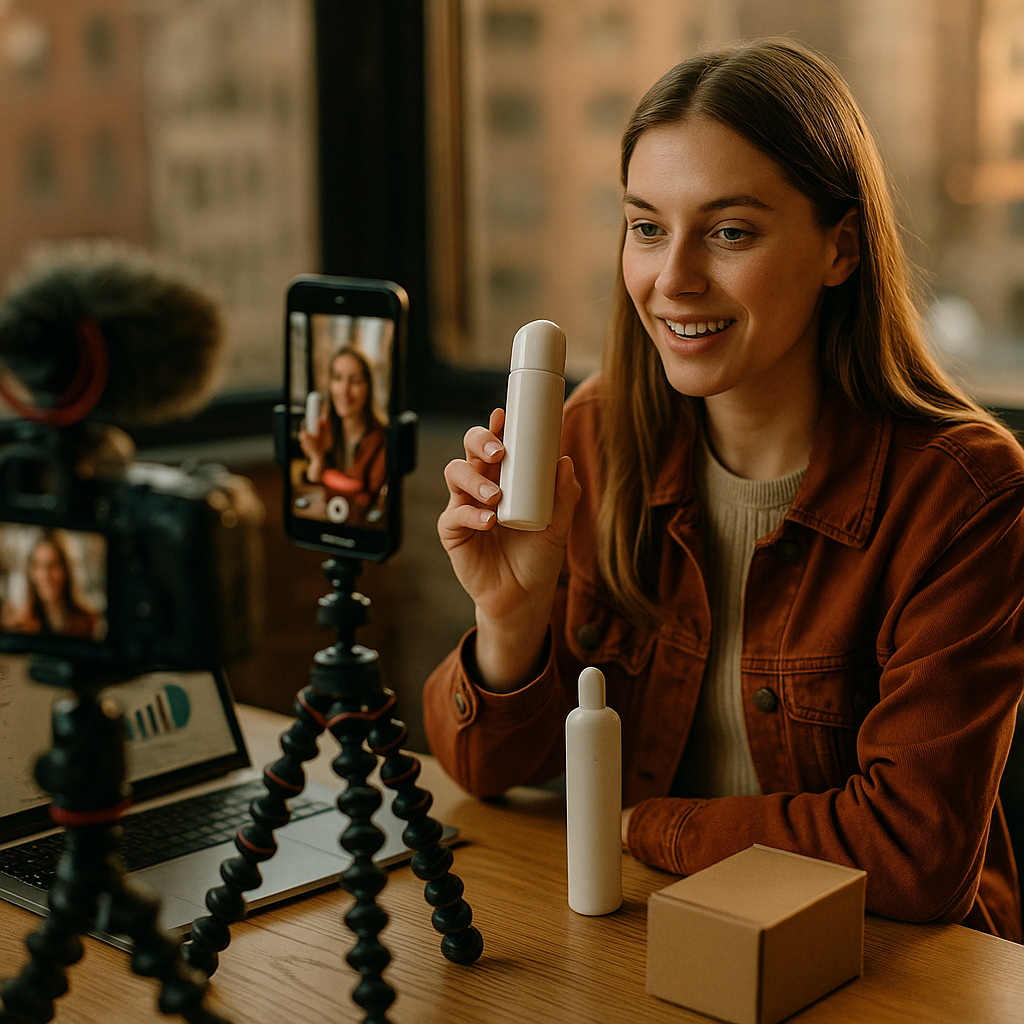Influencer marketing for market validation is a powerful strategy modern startups use to gain traction and customer trust efficiently. In this case study, discover how a resourceful startup leveraged digital creators to validate its idea, refine its messaging, and launch with impact. Ready to unlock how influencer partnerships can accelerate product validation? Let’s dive in.
Understanding Why Startups Choose Influencer Partnerships
Startups face unique hurdles: limited budgets, low awareness, and uncertain demand. Many find traditional market research costly and time-consuming. Partnering with influencers allows startups to test new products or concepts in real-world settings, skipping lengthy focus groups or expensive surveys. This collaboration offers unbiased feedback and measurable exposure—key aspects for digital-first startups in 2025.
Influencer marketing grants startups direct access to niche audiences. Not only do influencers provide honest reviews, but their communities respond authentically. Startups watching these interactions gather actionable market validation to decide whether to pivot, refine, or scale unchanged. In highly competitive sectors, speed and genuine consumer interest are critical.
Building a Strategy: Selecting the Right Influencers for Market Validation
Effective influencer marketing for market validation starts with thoughtful partner selection. Our featured startup, an eco-friendly meal kit provider, mapped out its target audience: urban millennials prioritizing sustainability. They sought influencers whose communities matched this profile and examined each creator’s engagement rates, content style, and authenticity.
The strategy followed these steps:
- Audience Alignment: Shortlist creators whose followers matched the intended customer demographics.
- Content Fit: Analyze prior collaborations to gauge consistency and messaging tone.
- Engagement Over Reach: Choose micro-influencers with loyal, highly interactive followings over mega-influencers with broad but passive audiences.
- Transparent Agreements: Set clear expectations, feedback mechanisms, and disclosure requirements in line with global regulations.
This meticulous approach ensured that influencer posts would drive meaningful conversations rather than one-off clicks, providing credible market validation data.
Executing Influencer Campaigns to Validate the Market
With partners in place, the startup executed an agile influencer campaign. Influencers received the meal kit prototypes and were encouraged to share unfiltered experiences, opinions, and suggestions via Instagram Stories, TikTok videos, and LinkedIn articles. This multi-platform approach targeted various customer mindsets—from daily routines to environmental concerns.
Instead of merely seeking praise, the startup asked creators to highlight areas for improvement and pose questions to their followers. Polls and comment threads generated data on flavor preferences, packaging appeal, and pricing perceptions. This direct feedback loop allowed analysts to extract recurring consumer pain points and validate demand hypotheses in real time.
Throughout the campaign, the startup tracked:
- Brand mentions and sentiment across chosen platforms
- Quality and tone of follower responses
- Redemption rates of influencer-exclusive discount codes (a proxy for purchase intent)
Measuring Success: Key KPIs in Influencer-Driven Market Validation
Since market validation requires more than social buzz, the team set clear measurement standards. They emphasized data transparency and leveraged third-party analytics tools for unbiased insights. The key performance indicators tracked included:
- Net-new signups and preorders from influencer traffic
- Survey completion rates post influencer call-to-actions
- Qualitative feedback—common themes in user reviews, comments, and DMs
- Virality metrics—shares, saves, and UGC (user-generated content) inspired by the campaign
Findings revealed valuable insights about customer willingness to switch from competitors, desired kit varieties, and perceptions of eco-friendliness. The influencer-sourced conversation provided hard evidence to validate—and in some cases, challenge—the startup’s initial assumptions.
According to 2025 survey data from Influencer Marketing Hub, 76% of startups report that influencer validation delivers higher trust and faster product-market fit compared to focus group results. The results confirmed the startup’s business case, reduced risk, and informed expansion planning.
Optimizing Products and Messaging Based on Influencer Feedback
Market validation is only valuable if it leads to action. Using influencer-driven insights, the startup made several impactful changes:
- Adjusted portion sizes and packaging materials in response to eco-conscious consumer comments
- Refined brand messaging to address recurring skepticism about meal freshness
- Reworked pricing tiers based on feedback from influencer-led polls
By maintaining transparency about these changes both with influencers and their audiences, the startup deepened trust and fostered brand advocacy. This open, iterative process demonstrated responsiveness—central to modern digital branding and a core EEAT principle (Experience, Expertise, Authoritativeness, and Trust).
Conclusion: The Benefits of Influencer Marketing for Market Validation
Harnessing influencer marketing for market validation provided the startup rapid, data-driven product feedback and authentic customer engagement. For founders seeking credible insights before scaling, this approach offers agility, transparency, and trust—a proven formula in 2025’s dynamic startup landscape.
FAQs About Startup Influencer Marketing for Market Validation
-
What is influencer marketing for market validation?
It’s a strategy where startups collaborate with influencers to test new ideas, collect candid customer feedback, and gauge real demand before full-scale launches.
-
Why choose influencer campaigns over traditional market research?
Influencer campaigns provide faster results, access to specific target audiences, and real-world reactions—offering practical validation at lower costs and reduced time-to-market.
-
How do I select the right influencer for my startup?
Prioritize audience alignment, engagement rates, and authenticity. Choose creators whose values and followers mirror your intended customers, and vet their prior collaborations for relevance.
-
Can influencer marketing fully replace classic validation methods?
It’s highly effective but best used alongside analytics and direct surveys for holistic insight. Combining qualitative influencer feedback with quantitative data yields reliable validation.
-
What are common mistakes to avoid?
Avoid focusing solely on reach instead of engagement, neglecting ongoing measurement, and failing to iterate products based on feedback. Transparency and open communication with both influencers and audiences are vital.
